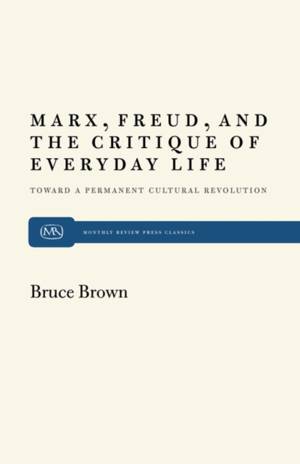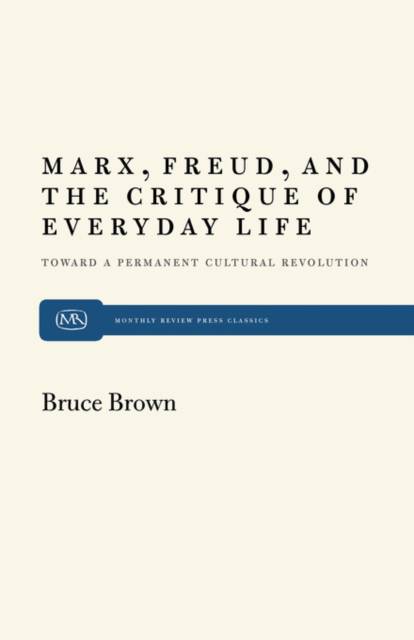
- Retrait gratuit dans votre magasin Club
- 7.000.000 titres dans notre catalogue
- Payer en toute sécurité
- Toujours un magasin près de chez vous
- Retrait gratuit dans votre magasin Club
- 7.000.0000 titres dans notre catalogue
- Payer en toute sécurité
- Toujours un magasin près de chez vous
Marx, Freud and the Critique
Toward a Permanent Cultural Revolution
Bruce Brown
Livre broché | Anglais
33,95 €
+ 67 points
Description
The theory and practice of revolutionary social transformation, Bruce Brown argues, cannot rest content with the exclusive emphasis of traditional Marxism on world-historic processes and the struggle of the working classes for their collective emancipation. This means to discover how capitalist rule becomes internalized in individuals who suffer not only from economic and political oppression, but also from forms of specifically psychological oppression that any revolutionary worthy of the name must address. Toward this end of reconciling the personal and the political, the author surveys not only the lessons learned in the New Left during the 1960s, but also the contributions of critical Marxists who have sought to reconstitute Marxism as a critique of everyday life through a critical assimilation of Freudianism into the broader structure of historical materialism.
Spécifications
Parties prenantes
- Auteur(s) :
- Editeur:
Contenu
- Nombre de pages :
- 202
- Langue:
- Anglais
Caractéristiques
- EAN:
- 9780853452805
- Date de parution :
- 26-08-10
- Format:
- Livre broché
- Format numérique:
- Trade paperback (VS)
- Dimensions :
- 140 mm x 216 mm
- Poids :
- 263 g

Les avis
Nous publions uniquement les avis qui respectent les conditions requises. Consultez nos conditions pour les avis.






